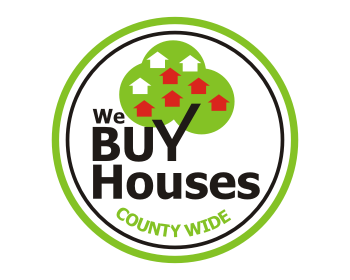
When selling your house in Concord, CA, it’s essential to have a clear understanding of your holding costs. These costs can accumulate quickly, especially if your property remains on the market for a long time. Holding costs can include mortgage payments, property taxes, homeowner’s insurance, utilities, maintenance, and even repair costs. All of these expenses need to be factored in when planning the sale of your home to ensure you’re not caught off guard by the financial burden.
Let’s dive deeper into the various elements that make up holding costs and explore how you can calculate them to better prepare for your home sale.
Understanding Holding Costs
Holding costs are the ongoing expenses you incur while your house is listed for sale and before the transaction closes. Even if you’re not living in the property, these costs don’t disappear, and they can reduce your overall profit margin. In some cases, if your home sits on the market for longer than expected, these costs can accumulate to a point where they significantly impact your bottom line.
Why It’s Important to Calculate Holding Costs
By calculating holding costs upfront, you can make more informed decisions about pricing, negotiating, and even how long you’re willing to keep the property on the market. For instance, if you know that holding the property for an extra month will cost you $2,500, it might be worth accepting an offer sooner, even if it’s slightly below your asking price, to avoid those additional expenses.
Here’s how to break down the most common holding costs:
1. Mortgage Payments
If you still have a mortgage on your property, this will likely be one of the most significant holding costs. Your monthly mortgage payment includes both the principal and the interest, and it continues until the house is sold. To calculate your mortgage-related holding costs, multiply your monthly mortgage payment by the number of months you expect the property to remain on the market.
For example, if your monthly mortgage payment is $2,000 and you expect the sale to take 4 months, your total mortgage holding cost will be $8,000.
Special Considerations for Mortgage Holding Costs:
- Adjustable-Rate Mortgages (ARMs): If you have an ARM, keep in mind that your payments may fluctuate, affecting your holding costs.
- Late Payments: Falling behind on payments can also lead to penalties and fees, increasing your costs.
2. Property Taxes
Property taxes are another significant ongoing expense. They don’t stop accumulating just because you’re selling the house. Depending on the time of year and the local tax cycle, you may be responsible for paying property taxes even after you’ve accepted an offer on your home but before the sale officially closes.
To calculate this cost, take your annual property tax bill and divide it by 12 to get your monthly tax obligation. Multiply this by the estimated number of months it will take to sell.
For example, if your annual property tax is $6,000, your monthly tax cost is $500. If you expect to sell in 3 months, you’ll incur $1,500 in property tax holding costs.
3. Homeowners Insurance
Insurance is another essential cost to consider. Even if your house is unoccupied, you need to maintain insurance coverage to protect against potential risks like fire, theft, or other damage. Depending on the type of policy you have, you might also need to upgrade to a more expensive “vacant property” policy if the home is uninhabited for an extended period.
Calculate your monthly insurance premium and multiply it by the number of months your home is on the market.
Tip:
- Bundled Policies: If you’re relocating and have insurance on another property, ask your insurance provider if you can bundle policies to reduce your premiums.
4. Utilities
Even if you’ve vacated the house, keeping the utilities running is critical for ensuring a smooth selling process. When potential buyers come for viewings, they expect a comfortable, functioning environment. Essential services such as electricity, water, and gas must be operational so that buyers can evaluate the house properly. They will want to turn on lights to see each room clearly, run the faucets to check water pressure, and ensure that heating or cooling systems are working effectively. Additionally, these utilities are necessary for conducting essential inspections and walkthroughs, which can sometimes occur right up until closing.
If your house is uninhabited, you’ll likely be paying for these utilities despite not using them yourself. While you may reduce usage by turning off lights and setting the thermostat to minimal levels, there will still be basic ongoing costs, such as powering security systems, maintaining hot water for inspections, or running the HVAC system during open houses to ensure the home remains comfortable.
To calculate utility costs, review your past bills to determine an average monthly amount for water, electricity, gas, and garbage collection. In Concord, CA, these costs may vary depending on factors like the size of the home, weather, and the time of year. If, for example, your utility bills average $300 per month and you expect the house to remain on the market for 3 months, you can estimate your utility holding costs at $900. It’s important to remember that you might need to keep the utilities running even a few days after closing to accommodate final walkthroughs and inspections, so factor that into your calculations as well.
Beyond basic utilities, you may also be responsible for paying for internet or cable services if these are active during the sale period. If you’re conducting virtual tours or marketing your home online, keeping internet service may be necessary. While you can cut some services to save on costs, it’s important to carefully consider which utilities need to remain operational.
5. Maintenance Costs
Maintaining your home’s exterior and interior appearance is vital for attracting potential buyers and securing a quick sale. Even if the house is vacant, regular upkeep is necessary to ensure it remains visually appealing. First impressions matter, and prospective buyers are more likely to be interested in a property that looks well-maintained and cared for.
One of the biggest factors influencing curb appeal is lawn care. Overgrown grass, untrimmed bushes, or dying plants can quickly turn buyers away, so regular mowing, trimming, and landscaping are essential. This might also include seasonal activities like leaf removal, weeding, or planting flowers to enhance the property’s appearance. Landscaping costs can vary widely depending on the size of the yard and the services required, but as an example, you might budget around $100 per month for basic lawn care. If your home is on the market for three months, that adds $300 to your holding costs.
In addition to exterior maintenance, the interior of the house needs to be kept clean and in good condition for showings. This may include regular cleaning services, dusting, vacuuming, and ensuring that all rooms are presentable. If the house is vacant, dust can accumulate quickly, and small issues like dirty windows or worn carpets can detract from the overall impression. Some homeowners opt for professional cleaning services, which could range from $100 to $200 per visit, depending on the size of the home.
5. Repair Costs
Unexpected repairs are an often-overlooked but crucial component of holding costs, particularly for older homes or properties that haven’t been updated recently. Repairs can range from small, inexpensive fixes to larger, structural issues that need immediate attention before a sale can be finalized.
In many cases, buyers will request repairs as part of the negotiation process after they conduct a home inspection. While some of these requests might be minor, like replacing a broken window or fixing a malfunctioning appliance, others can be more significant. For example, issues with the foundation, roof, or plumbing can be costly to repair and may need to be addressed before a buyer is willing to move forward with the sale. Additionally, major repairs can delay the selling process, increasing your holding costs as the property remains unsold for a longer period.
If repairs are necessary, you’ll need to budget for them accordingly. For example, replacing a faulty roof could cost thousands of dollars, while fixing a leaky faucet or replacing a few tiles might only be a few hundred. Keep in mind that any money you spend on repairs before listing your house may be recouped through a higher selling price, as buyers are more likely to make strong offers on well-maintained homes.
Alternatively, some sellers prefer to sell the house “as-is” to avoid the headache of repairs. In this scenario, you may attract investors or buyers who are willing to purchase the property with its existing issues, though you might need to adjust the asking price to reflect the cost of necessary repairs. Working with cash buyers or real estate investors who specialize in purchasing homes in as-is condition can help you avoid repair-related holding costs altogether, though this may result in a lower overall sale price.
7. Travel and Relocation Costs
If you’ve already relocated or are traveling back and forth to maintain the property, travel costs are another expense you’ll need to account for. This could include airfare, car rentals, or accommodation costs. Additionally, if you’re paying someone to manage the property while it’s on the market, these management fees should be considered.
Strategies to Reduce Holding Costs
There are ways to reduce your holding costs if you’re concerned about the impact on your finances:
- Price the Property Competitively: Homes priced right tend to sell faster, reducing the time spent paying holding costs.
- Sell to a Cash Buyer: Cash buyers, like professional investors, can often close on a home faster, reducing the time it stays on the market.
- Make Repairs in Advance: Addressing major repair issues before listing can prevent drawn-out negotiations that delay the sale.
How Investors Can Help
Real estate investors like Kevin Roberts and his team at WeBuyHousesCountywide.com specialize in buying homes quickly and for cash, often with minimal preparation required from the seller. By selling directly to an investor, you can avoid many of the holding costs, including repairs, maintenance, and utilities. Investors typically purchase properties as-is, so you won’t have to worry about making improvements or keeping the house in show-ready condition.
In summary, understanding your holding costs when selling your house in Concord, CA, is crucial. Professional investors like Kevin Roberts and his team at WeBuyHousesCountywide.com can help you calculate your holding costs without obligation. They work to make the process simple and easy for sellers, and they buy houses quickly and efficiently. For more information, visit WeBuyHousesCountywide.com or call Kevin Roberts at 925-587-9740.
.

